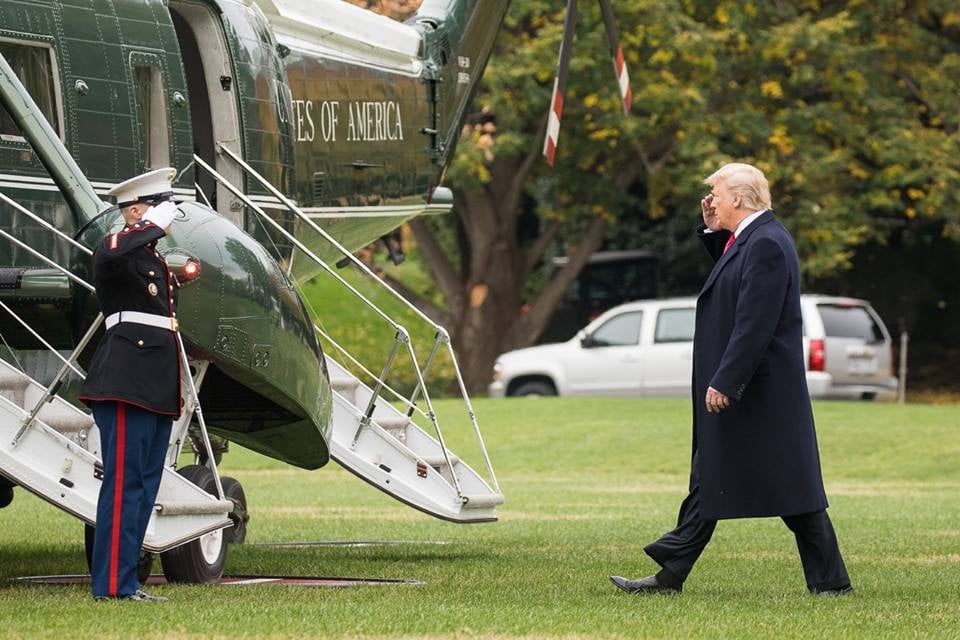Egypt’s decision to quit Trump’s anti-Iran coalition shows that the administration’s grand plans for the Middle East have descended into farce.
By FRED KAPLAN, Τhe Slate
Donald Trump’s Middle East strategy took another pounding this week, when Egypt withdrew from an anti-Iran coalition that Saudi Arabia proposed two years ago and that the president and his top aides have been pushing ever since.
The fact that the pullout occurred the day after Egyptian President Abdel Fattah el-Sisi met with Trump in the White House—a warm get-together where Trump praised Sisi as a “great president”—compounds the setback.
Finally, the fact that Egypt has the Arab world’s largest army signals that the coalition—formally called the Middle East Strategic Alliance and dubbed by some the “Arab NATO”—has collapsed before it stood up.
In very much related news, Benjamin Netanyahu’s apparent reelectionthis week as Israel’s prime minister, along with his pledge to annex the West Bank, all but guarantees that the chance of an Israeli-Palestinian peace deal—still a grand pipe dream of Trump and his son-in-law, Jared Kushner—has shrunk from nil to zero.
Some in Israel, perhaps including Netanyahu himself, think that Trump’s avid endorsement of his reelection pushed the four-term incumbent over the top in the very close contest. Most U.S. presidents in this position would use that perception as leverage to get Netanyahu to back off on some of his more self-destructive policies. Not Trump. In his bid to win votes from Jews and Christian evangelicals in 2020, Trump is letting Netanyahu and his even farther-right-wing partners do whatever they want. Not long before the election, in what may have encouraged Netanyahu to announce his West Bank intentions, Trump formally recognized Israeli sovereignty over the Golan Heights—and then asked for nothing in return.
Arab leaders have slackened their support for the Palestinians in recent years, since turning their attention to the cold war with Iran—a cause for which some have even formed a quiet alliance with Israel. (Their championing of the Palestinian cause, even in the heyday of Yasser Arafat, was always a bit of a ruse, to deflect their own internal and internecine disputes and problems of governance.) Still, it is hard to imagine these leaders ever agreeing to an overt peace with Israel if Netanyahu now follows through on his expansionist plans.
According to Vicky Ward’s new book, Kushner, Inc.,the peace plan being drawn up by Trump’s son-in-law, at least at one point, involved Jordan giving some of its land to the Palestinians in exchange for a chunk of land from Saudi Arabia. The Saudis would then be compensated with two Red Sea islands from Egypt. This would have been a preposterous notion even when Washington had more leverage in the region and shrewder diplomats to exert it. Now, it’s the stuff of absurdist comedy.
Trump officials have denied the account as fake news. But the Kushner peace plan is widely mocked on the inside. When Secretary of State Mike Pompeo, the most deferential member of Trump’s Cabinet, was asked at a congressional hearing last month when Kushner’s plan would be unveiled, he replied, laughing, “Less than 20 years—I prefer not to be more precise.”
The Middle East is a tough place for even the finest, best-intentioned diplomats. If the regional tensions between Shiites and Sunnis were the only problem to settle, things would be tough enough. But the region is rife with multiple conflicts over ideology, religion, and land. Some nations are allies on some issues, adversaries on others; borders are in dispute and, in any case, porous; transnational terrorists inflame the tensions, as do outside powers who view local battles as proxy wars for their own benefit.
But Trump is making matters worse by encouraging Netanyahu’s worst tendencies, exacerbating the Saudi-Iranian sectarian conflict, making no diplomatic overtures (not even just for rhetorical show), and abrogating what little influence he might have, except when it comes to encouraging war against Iran and its militias.
Egypt’s withdrawal from the anti-Iran coalition should (but won’t) prod Trump into realizing that the Middle East—like health care, as he once exclaimed in a short-lived moment of clarity—is more complicated than he’d figured.
Sisi’s problem with the notion of an Arab NATO seems to be threefold. First, he doesn’t believe the United States will stick with it, especially if Trump isn’t reelected in 2020. Second, he understands that the prospective member countries—Kuwait, Bahrain, Qatar, Oman, Jordan, and the United Arab Emirates, as well as Egypt and Saudi Arabia—have their own differences. Third, Egypt, though an age-old rival of Iran in the contest for regional dominance, doesn’t feel directly threatened by the Islamic Republic’s current leaders and has no desire to intensify tensions with them, much less get sucked into an alliance-driven war.
This last bit, I suspect, surprises Trump the most. It must puzzle him that Sisi has no affection for Iran but no desire to topple the regime either, not even as a tribute to their friendship. (Once again, as in many other meetings with world leaders, Trump mistakes political behavior for friendship and fails to see that policies are, in any case, shaped more by interests than by personal relationships.)
The big failing in Trump’s policy in the region is that he doesn’t know what he wants, except to help Israel (which he isn’t doing, in the long run, by giving Netanyahu and his partners everything they want) and to crush Iran (which is harder than he imagines and which would likely lead to something worse). He has no strategy, only bluster, and Egypt’s breakaway makes that clearer than ever.



















